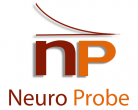To test the hypothesis that the phosphatidylinositol 3-kinase (PI3 kinase)/protein kinase Akt signaling pathway is involved in nitric oxide (NO)-induced endothelial cell migration and angiogenesis, we treated human and bovine endothelial cells with NO donors, S-nitroso-l-glutathione (GSNO) and S-nitroso-N-penicillamine (SNAP). Both GSNO and SNAP increased Akt phosphorylation and activity, which were blocked by cotreatment with the PI3 kinase inhibitor wortmannin. The mechanism was due to the activation of soluble guanylyl cyclase because 8-bromo-cyclic GMP activated PI3 kinase and the soluble guanylyl cyclase inhibitor 1H-[1,2,4]oxadiazolo[4,3-α]quinoxalin-1-one (ODQ) blocked NO-induced PI3 kinase activity. Indeed, transfection with adenovirus containing endothelial cell NO synthase (eNOS) or protein kinase G (PKG) increased endothelial cell migration, which was inhibited by cotransfection with a dominant-negative mutant of PI3 kinase (dnPI3 kinase). In a rat model of hind limb ischemia, adenovirus-mediated delivery of human eNOS cDNA in adductor muscles resulted in time-dependent expression of recombinant eNOS, which was accompanied by significant increases in regional blood perfusion and capillary density. Coinjection of adenovirus carrying dnPI3 kinase abolished neovascularization in ischemic hind limb induced by eNOS gene transfer. These findings indicate that NO promotes endothelial cell migration and neovascularization via cGMP-dependent activation of PI3 kinase and suggest that this pathway is important in mediating NO-induced angiogenesis.
http://mcb.asm.org/content/23/16/5726.full
